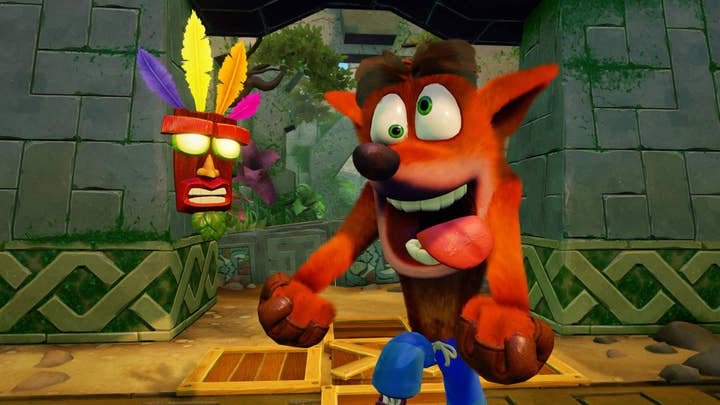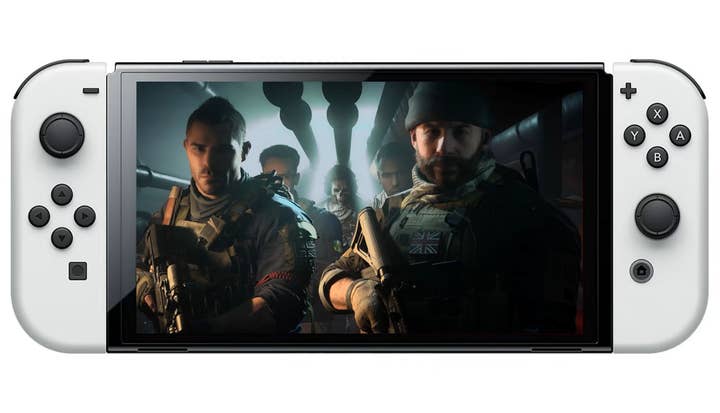Call of Duty on Nintendo is a sideshow | Opinion
As reports mount that regulators are worried about Microsoft's proposed Activision Blizzard deal, Xbox has gone on a PR offensive
This week, in the latest round of noise around Microsoft's acquisition of Activision Blizzard, the company announced it was committing to releasing Call of Duty on Nintendo consoles for ten years.
The internet loved that, of course. And Xbox knew it would. Here was the company waving a piece of paper that proved to the world that not only is Xbox committed to not making Call of Duty exclusive, it is making it even less exclusive than ever. It's a great PR move, and one that has the added benefit of highlighting Nintendo Switch as a legitimate platform for mature-rated games (note: The Brazil regulator approved the deal, citing Nintendo Switch as a successful console without Call of Duty. However, the UK regulator argued that Nintendo’s family-friendly focus meant they weren’t directly comparable).
It proves a point, but little else. To make a AAA Call of Duty for Switch (which I assume is the suggestion) will take years. By the time one is ready, we'll be onto whatever the next Nintendo machine is. And who know what Nintendo plans to do. A new Switch? Or something utterly random? Maybe it'll be another hit, maybe it'll be Wii U 2. Either way, Microsoft just committed to developing and releasing an expensive game series on it for a decade.
The thing Xbox needs (or at least, it thinks it needs) is a big game. It needs Call of Duty. That will get Game Pass moving again
In an interview with the Wall Street Journal, Spencer said that Microsoft's experience in bringing Minecraft to Nintendo consoles meant it has the capability to do this. But you know who also has this experience? Activision Blizzard.
The publisher has – very successfully – ported the likes of Diablo, Crash Bandicoot, Tony Hawk’s Pro Skater, Spyro the Dragon, Overwatch and a whole bunch more to Nintendo's platform. Activision has always been a big supporter of Switch. It is more than capable of bringing Call of Duty to the console, and its decision not to suggests that maybe, just maybe, the demand for the game just isn't there amongst Nintendo's audiences.
The statement about Nintendo came just a few weeks after Microsoft's 111-page monster response to the UK regulator (the CMA). And just days after Microsoft president Brad Smith penned an article – again via The Wall Street Journal – laying out the company's vision for the deal.
All of this comes amidst a flurry of media reports that the US regulator – the FTC – is considering blocking the deal. This wasn't the regulator Microsoft was concerned about three months ago, but now it is. President Joe Biden's administration is looking to crack down on the dominance of the tech giants, and this is the first test of that resolve.
Apparently, anyway. There's always gossip and drama around this sort of thing, and it's hard to know what's genuine. But Microsoft's response this week suggests there's at least an element of truth to what's being reported.
I am not sure if Microsoft's commitment changes much. Any concession needs policing. It's all well and good Microsoft promising Sony, Valve and Nintendo things, but who is keeping an eye on all this? This is why some regulators generally try to avoid such agreements.
Plus, it only counters one of the potential issues about the deal. The other big concerns are all around games subscriptions and streaming, and pledging to keep a game on a rival hardware platform – where it's only available for $70 – doesn't address those points.

Microsoft argues that streaming and subscriptions isn't a 'market'. Streaming is just one distribution model, and subscriptions is just one monetisation method. Neither are very big, and there are other, more popular models out there. That's completely true. And both are struggling.
Game Pass and PlayStation Plus, the two subscription services we have any data on, have been adopted by about 30% to 40% of each console's audience. Estimates suggest that the situation is similar for Nintendo. And things seem to have stalled. Subscribers are unsubscribing, and both PlayStation and Nintendo's recent efforts in subscriptions have been around 'upgrading' customers to higher tiers. In other words, new subscribers are hard to come by, so let's focus on the ones we've got.
Offering Call of Duty to Nintendo does little to allay [regulators] concerns
This isn't the dream for Microsoft. Brad Smith's Wall Street Journal article lays out the vision, which is to make games more accessible in the way Netflix has for TV. The problem is that most consumers don't seem that interested. The thing Xbox needs (or at least, it thinks it needs) is a big game. It needs Call of Duty. That will get Game Pass moving again. Throw in Blizzard and its PC library, bring in those mobile games from King, and suddenly game subscriptions and streaming might work to the level it was aiming for.
This is where the real issue is in my eyes. And it's complicated. If this deal helps ignite subscriptions and streaming – and that could be a good thing for video games – does that position Microsoft as the industry leader? And if so, how big will that lead be?
There are a lot of 'ifs' in there. And I am glad I'm not the one having to work it all out. All the endless noise around the deal, and the media circus that follows every little statement, is frankly dizzying.
But the latest announcements from Xbox did little to persuade me either way. In fact, there was one line in Smith's opinion piece that alarmed me. It's the one that read: "[Sony is] as excited about this deal as Blockbuster was about the rise of Netflix".
The analogy may be designed to present Sony as some old, out-of-touch business, rather than directly comparing it to Blockbuster. But the choice of companies isn't an accident. So what is Brad suggesting? That Microsoft is revolutionising games distribution and monetisation in the way Netflix did for TV? And that Sony risks going the way of Blockbuster as a result? This doesn't sound like a compelling reason to pass the deal.
Because Microsoft isn't Netflix. It is one of the most powerful, successful and influential tech giants in the world. That's why some regulators are wary about this deal.
And offering Call of Duty to Nintendo does little to allay those concerns.
Sign up for the GI Daily here to get the biggest news straight to your inbox

